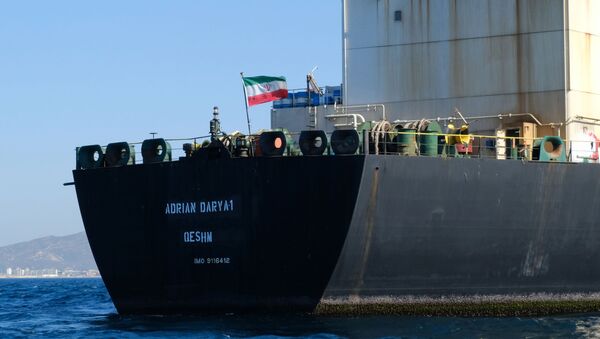Athens has not received a request from the Iranian tanker Adrian Darya to dock in Greece, Merchant Marine Minister Ioannis Plakiotakis said on Tuesday, as website Marine Traffic data reportedly showed the vessel was on course for the port of Kalamata, in Greece's Peloponnese Peninsula, reports AFP.
"There is officially no request concerning the arrival of the Iranian tanker in a Greek port", Plakiotakis told Greek media.
"We are following its progress and are working with the Greek foreign minister", he added.
The tracking website placed the supertanker, with a cargo of 2.1 million barrels of oil, some 100 kilometres northwest of the Algerian port of Oran.
Port authorities in Kalamata have not confirmed Marine Traffic's information.
An Iranian port authority said the Adrian Darya was in international waters with its destination unclear.
Iran tanker detention
On 15 August the authorities of Gibraltar ruled to release the tanker, formerly called Grace 1, which was detained on 4 July by British Royal Marines on suspicion of transporting oil to Syria in violation of EU sanctions.
Despite the US issuing a warrant for the capture of the tanker, claiming it was in breach of international regulations and illegally transporting oil to Syria, the Gibraltar authorities rejected Washington’s request, citing differences in US and European sanctions against Iran.
Gibraltar also stated it had received assurances from Iran that the tanker was not going to deliver its cargo to Syria, although Tehran denied making any pledges regarding the issue.
Washington called the decision to release the Iranian tanker unfortunate and warned Greece and other Mediterranean ports against helping the vessel.
The Adrian Darya left anchorage off Gibraltar about 11 p.m. (21:00 GMT) on Sunday, reported Reuters, with Refinitiv ship tracking data on Monday showing the vessel heading to Kalamata, Greece.
Spiralling US-Iran tensions
Tensions have been running high between Iran and the Western powers since the US’s unilateral withdrawal from the 2015 Joint Comprehensive Plan of Action (JCPOA), citing Tehran’s alleged violations of the terms of the deal. Tehran has persistently rejected all of the US allegations.
Washington subsequently re-imposed crippling sanctions on the Middle Eastern nation, stopping billions of dollars in business deals and largely halting the sale of Tehran's crude oil internationally.
Tensions proceeded to flare dangerously, with the Persian Gulf witnessing attacks on oil tankers and other high-stakes confrontations, used by Washington as a pretext for beefing up its military presence in the region.


